Episodes
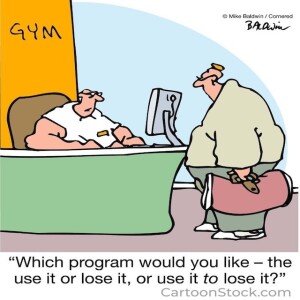
Sunday Apr 27, 2025
Sunday Apr 27, 2025
This week, I want to talk about how you have to use something or invest in itregularly, or you will lose it. Whatever it is, skills, relationships, or health, unless you give something your regular attention and nurture it, it just withers away.
Use it or lose it. This phrase is so true for almost everything in life. Skills, opportunities, health, etc. If you don't actively engage in something, you often risk losing things that are important to you. It’s easier to maintain something, than to rebuild it again from scratch.
For example, take learning a new language. You can spend many months learning a new language, but if you don’t keep learning it regularly and let any routine slide, before you know it, you are barely able to string a simple sentence together in that new language anymore.
Even relationships and friendships aren't immune. Life always gets busy, but connections fade if neglected. So you have to reach out to people whenever you can, even if it’s just sending a quick message asking how someone is. Proactively invest in relationships if you want them there in the future.
Or apply this principle to physical fitness. If you ignore an exercise regime, you quickly find that your energy levels drop, you feel more stressed and you become stiffer and less flexible. If you don't use muscles, they weaken. If you don’t use abilities regularly, they just slip away.
Other examples are how artistic talents fade without practice, or how musical abilities diminish without play. You must use your talents regularly if you want to keep them sharp; only frequent performance or practice maintains skills. Continuous learning about anything is also important.
Think of how consistent gardening keeps plants healthy and flourishing. If you ignore garden care, weeds overrun it. Or think of how finances or investments require regular attention. If you neglect things, you get into financial difficulties, but regular check-ins ensure finances grow, or you don’t miss opportunities.
However, the use it or lose it philosophy isn't universally applicable or accepted. Some skills and relationships sustain themselves, even during dormant periods. For instance, some friendships endure, regardless of time spent apart, and can be rekindled effortlessly when reconnected. Also, recognise people are different.
And don't underestimate the value of rest. Stepping back often offers fresh perspectives, or allows for a return to something with your renewed energy. A balanced approach also knows that, whilst regular engagement usually helps, it’s not always essential. Pauses can enhance, not just diminish your abilities.
So, this week, remember how the phrase “use it or lose it" emphasises regularity with anything to keep it alive. However, also remember that some things may still thrive through quiet times and breaks can allow for rest, recharge and reflection - not all aspects of life always require constant attention!
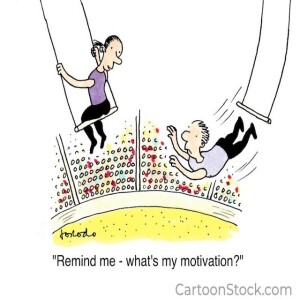
Sunday Apr 27, 2025
Sunday Apr 27, 2025
This week, I want to talk about how motivation first requires action . Like many people, I genuinely used to believe that motivation was needed first before taking action. But I’ve come to realise over time that it’s actually usually the other way around - motivation kicks in after taking action!
It’s really empowering knowing this, as you then realise that, when motivation feels elusive, or not in your control, taking action always remains within your control. After taking initial steps, they build your confidence and, as you start seeing progress, that progress then becomes its own motivation for you.
The important thing therefore is just starting something, even if you do not feel fully ready to do it as, once you begin doing something, your motivation for doing it will normally follow, which then provides you with more momentum to keep going. It is self-perpetuating and circular!
Starting to take action about something, even if just in a small way, lights the motivational fire that you often wait for. It’s like a cycle, isn’t it; your action to do something leads to your motivation for doing it, which in turn fuels and propels you to more action.
Here are some examples:
- People often cannot muster motivation for exercise, even though they know they should be more active, so they make excuses to themselves and others. But just putting on trainers and going for a short walk or run, motivates them to keep going every day, or to just do more.- Starting to read a new book sometimes feels a bit daunting, especially if a long one. But reading just one page usually sparks your interest and curiosity, providing you with the motivation to keep turning pages.- Many people refrain from learning a musical instrument or new language, but practising simple things routinely on a daily basis usually ignites motivation for them to eventually play full songs, or to try conversing with others.
But, whilst action builds momentum, motivation is still a strong foundation, making actions better. Motivation also fuels determination, even if action seems daunting. People driven by internal drive can also frequently find motivation from within themselves, which propels them forward, without needing an external push to start something.
So, this week, remember that motivation usually follows action and, even taking small steps sparks motivation, fueling more action. Next time you’re waiting for motivation to strike before doing something, try flipping the script and start by just taking a simple step forward. Trust me, motivation will catch you up!
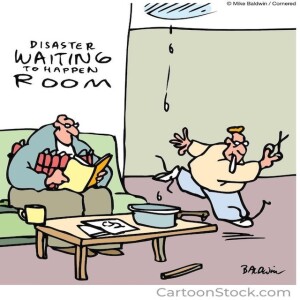
Sunday Apr 27, 2025
Sunday Apr 27, 2025
This week I want to talk to you about how you can usually turn a disaster into an opportunity, no matter how grim things seem sometimes. Don’t worry, we’ve all been there. Yet, it’s really amazing how a simple change in your perspective and approach can quickly change everything!
As I have said before, life sometimes throws unexpected curveballs your way. It’s not always easy when this happens and your first impulse may just be to panic or despair. However, there is always hope and you can still turn a disaster into an opportunity, if you just know how.
The first thing is to keep calm and not panic (they are actually two different things!). Then you must adjust your perspective consciously and see your disaster as an unscripted opportunity. If you do, it changes everything. Instead of dwelling on what you’ve lost, you begin to see new possibilities.
Doors you then thought were closed forever, begin to open for you and lead you down new and exciting paths. Each next step, however small, is then a positive step forward. With time and determination, you find a fresh start emerges, which is usally stronger and more fulfilling for you.
Here are some examples:
1. After missing an important bus, train, or flight, you may then find you meet someone personally or professionally, who changes your life forever.2. After a health scare, you may then embrace a healthier lifestyle, which transforms your physical and mental well-being.3. After losing a job, you may then start a small business and turn what seems like financial instability into a fantastic new venture for you.
But the reality sometimes is that not everyone can see possibilities in crisis. Some people find it hard to find the emotional or practical resources needed to go forward sometimes. The narrative of turning disasters into opportunities can also downplay the psychological toll that some events take on people.
So, this week, try to turn disasters into opportunities. Sometimes, the best opportunities arise just when everything else seems to fall apart. Take a deep breath, look beyond immediate turmoil and tsee things as not the end, but rather a new beginning. Remember, resilience is born in adversity!

Sunday Mar 02, 2025
Sunday Mar 02, 2025
This week, I want to talk to you about how, contrary to the old adage, you actually *can* have your cake and eat it too these days and, if you really think about it, the saying, "You can’t have your cake and eat it too," is perhaps now not as right as it once was!
How can you simultaneously have and eat a cake too. It's just not physically possible, as it’s a contradiction, isn’t it? Perhaps not, as this balance has become increasingly possible these days and we now seem to find ways to balance enjoying pleasures, while still holding onto things.
For example, technology now lets us work more flexible hours, whilst still allowing us careers and we now have more personal time than before. Or, remote working allows people the chance to live and work more comfortably in more affordable areas, while still maintaining high-paying inner-city jobs.
It's all about finding innovative solutions and being willing to break away from traditional constraints. The current modern era we now live in offers us unprecedented opportunities to defy existing limitations suggested by this old saying.
Here are some other examples:
- Hybrid cars (which use power from both electric and petrol/diesel sources) now offer both performance and sustainability together, so we can still have a proper driving experience, as well as having the environmental benefits of reduced emissions, which were a real problem before.- Freelancing for work now allows people to earn a much more stable income, while enjoying the increased freedom to travel and explore the world, previously not practically possible and merging financial security with personal desires.- We now can make much better financial choices that allow for both short-term enjoyment and long-term security, not just having to choose between indulgence and prudence. We can have both, so we can now savour our ‘cake’ and also keep some for later.
However, there are trade-offs. Although we now enjoy more flexible working hours, or working from home, doing this blurs boundaries between personal and professional lives. Also, freelancing offers more freedom, but it lacks job security. Remote work provides cost savings but isolates people from collaboration and networking with others.
So, this week, remember the saying: "You can't have your cake and eat it too,” is perhaps wrong now as, in today’s world, contradicting things are possible. However, also remember this balance involves sacrifices. Yet, we can now appreciate what life offers us, while still preserving our assets!

Sunday Mar 02, 2025
Sunday Mar 02, 2025
This week, I want to talk to you about why it’s so important not to make assumptions about anything or anyone and not to put 2 and 2 together sometimes and make 5! Making assumptions without sufficient evidence can lead to misunderstandings and unnecessary complications.
We’ve often seen ourselves or other people make assumptions about things and connect imaginary dots where there really aren’t any, or jump to conclusions too quickly. It’s so tempting to draw lines sometimes between unrelated events, but doing things in this way often leads us into unforeseen difficulties, or misunderstandings.
But it’s important to recognise this and always take a moment, step back and reassess before committing yourself to any conclusion. Even in situations where things don't add up, or the answer seems obvious, deep down, you may know instinctually that your initial assumptions may not be quite right.
It's like doing a puzzle, where a piece just doesn’t seem to fit. That's when we’re putting 2 and 2 together and making 5. However, collecting all the facts and evidence is vital before reaching any conclusions. That's how you avoid making 5.
Here are some examples:
- Imagine misreading or misinterpreting a written text message, social media post, or email and assuming too quickly that it says something it doesn’t. This even happens in well-crafted books or other more considered communication. This can lead to unnecessary conflict. - Or imagine hearing a rumor, or hearing two different stories about the same thing, or hearing half a story that might make you think something. You can too quickly assume a full narrative, without considering the context. or the potentially missing pieces.- Or imagine seeing something with your own eyes. Even that can mislead you. For example, just seeing somebody somewhere, or with someone that, in your eyes, they shouldn’t be with, doesn’t mean anything wrong is happening. Always give other people the benefit of the doubt, no matter how difficult.
However, quick judgments are necessary if time is limited. Gut instinct is crucial. Overanalysing may lead to paralysis by analysis, Assumptions, or judgments, while risky, also provide a starting point. Dismissing them entirely may mean not spotting important patterns, or missing useful insights. Seeking absolute certainty may also be unrealistic.
So, this week, try not to make 5 out of 2 and 2. Avoid premature conclusions. Jumping to conclusions without evidence creates problems. Gather facts before making judgments, or assumptions. And try to consider a person's situation first, just like you hope they would do for you if your roles were reversed!----
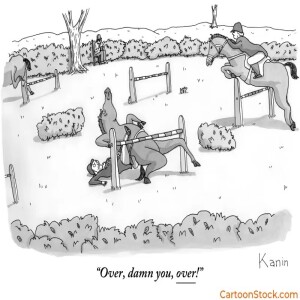
Sunday Mar 02, 2025
Sunday Mar 02, 2025
This week I want to talk to you about why you must always try to avoid obstacles, including obstacles that you even sometimes unconsciously put in your own way! We have the power to redefine things ahead of us.
It's really fascinating how life always throws obstacles our way. Obstacles in life are inevitable, but how we approach them makes a real difference. We often see obstacles that appear in front of us as hurdles we just have to get over.
But sometimes you should try to see obstacles as actually just cleverly disguised opportunities. When you start thinking like this, it changes your entire approach, as you stop seeing them as barriers, but instead start seeing them as stepping stones.
Initially, big things feel overwhelming, but you can adopt a more positive approach. For example, you can break a big task down into smaller parts. If you then successfully deal with each small part, you’re one step further to completing the big task. Suddenly, the obstacle doesn’t seem so daunting.
Here are some examples:
- Rejection from a dream job may redirect you to a career you then love even more. That initial setback becomes a pivotal moment of redirection and growth in your life in hindsight.- A physical injury can be very upsetting and stop you from doing something you love, either professionally or personally, but, as a result, you may then discover something else you develop an even greater passion for, turning what at first seemed like a setback into a new vocation or hobby.- A failed business venture teaches you invaluable lessons in resilience and innovation, which then often paves the way for a subsequent successful idea.
And not every obstacle needs to be tackled head-on. Sometimes, it's better to pause, take a step back and reassess a situation. There’s also a lot of value in adapting quickly. We can’t control the obstacles we face in life, but we can choose how we respond to them.
So, this week, if confronted by an obstacle, try to avoid focusing only on the problem but see if it is a potentially hidden opportunity for you. By adopting a different perspective, you often discover alternative paths you may not have considered before. A positive mindset always transforms things!
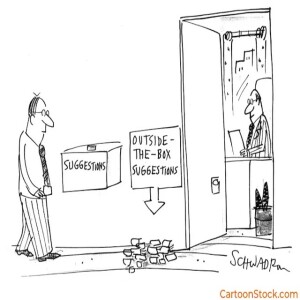
Sunday Mar 02, 2025
Sunday Mar 02, 2025
This week I want to talk to you about how we are all geniuses in hindsight. It seems so obvious, doesn’t it? But that’s because it's so true, as it's a very common experience for people to think like this.
Think about it, have you ever found yourself reflecting on past events that have happened to you and then thinking, or saying, something like: “*Perhaps, I should have done that differently"* or something like: "*If I’d only known then what I know now"?*
Looking back on things usually reveals a much clearer and more informed perspective. With hindsight, we always see mistakes we made, opportunities we missed, or paths we should have taken. But we have to be careful, as hindsight can sometimes also lead to us having feelings of regret.
However, hindsight can be a valuable learning experience, as it also allows us to recognise patterns, which then help us make better choices in the future. It teaches us to think critically and consider the consequences of decisions or actions. Hindsight allows us to learn from past mistakes.
Here are some examples:
- A grandparent who, now having grandchildren, reflects on their own parenting decisions from years before and now wishes they had handled situations with their own child differently.- A student who only later realises after finishing college or university that they should probably have chosen a different course of study that aligns better with their future career aspirations.- Someone who regrets not investing in something financially, such as property, or a particular stock, when it was priced low, only to now see it skyrocket in value later on.
While reflecting on the past provides valuable insights, avoid regrets, which are counterproductive. Constantly dwelling on past mistakes, missed opportunities, or rehashing past decisions just leads to feelings of self-doubt, which hinder you. Instead of just relying on hindsight to guide future decisions, adopt foresight and proactive thinking.
So, this week, next time you find yourself wishing you’d done things differently, remember we’re all geniuses in hindsight. Also, remember, not all memories are reliable. Seek out guidance and different perspectives and weigh potential outcomes before making any decision, so you increase your chances of minimising future regrets!

Sunday Mar 02, 2025
Sunday Mar 02, 2025
This week I want to talk to you about how, although I am well known for saying that hope is not a strategy, it is also very important for me to stress that hope is still important. Hope isn't just a passive feeling; it can be a strategic tool too. Hope is also contagious.
It sometimes feels like the world is closing in, but hope is still important; it keeps us moving forward, even if things seem bleak. In navigating life's chaos, hope guides us. Hope doesn't have to be grandiose. It's the small victories that count; even just getting out of bed some days.
It's easy to dismiss hope as just wishful thinking but, if channelled positively, hope fuels your determination. It's not naive optimism; it's you moving towards a desired reality. Hope fuels dreams. Hope is a safety net that catches you and reminds you to try again and to keep moving.
Optimism is also a catalyst, moving you towards unexpected opportunities. Hope helps us explore possibilities we sometimes overlook. Hope also strengthens resilience. When setbacks occur, as they inevitably do, hope prevents our despair from taking hold and reminds us to keep going, despite setbacks.
Here are some examples:
1. A doctor reassures a patient, saying hope fuels healing. Hope is a vital part of recovery, and hope for recovery may lead me to research treatments, or the patient to pursue a healthier lifestyle, ultimately aiding healing.2. A student who is struggling, hoping for improvement, adopts better study habits, ultimately raising grades. Or their teacher inspires students by planting seeds of hope, encouraging them to dream big.3. A gardener sows seeds of an apple tree with hope for the future as, although he knows he may not see or benefit from the apple tree in his lifetime, future generations will.
However, relying solely on hope results in disappointment, complacency, or prevents you from looking for solutions. Hope sometimes masks issues and creates false expectations or senses of security. Dependence on hope overshadows planning or proactive and pragmatic measures.
So, this week, hold on to hope and use it as a beacon to brighter days. Hope isn't about ignoring reality; it's about believing in the possibility of better outcomes. Pair hope with practical solutions. Hope can be a strategic tool. Harness it wisely!
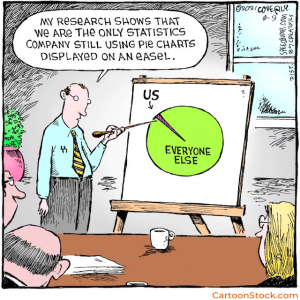
Sunday Feb 02, 2025
Sunday Feb 02, 2025
This week I want to talk to you about how we all make mistakes sometimes. Who hasn’t, none of us are perfect. I’ve come to realise over the years that, not only are mistakes just part of being human, but they’re actually also the moments that teach us the most.
Do you remember a time when you made a gigantic mistake in public? It felt like the world stopped, didn’t it? But guess what - it didn’t. Funnily enough, mistakes usually lead us to our most profound insights. Each one holds a hidden lesson, just waiting to be uncovered.
Mistakes sting you initially, but they’re not permanent. Your mistakes don't define you. People are also much more forgiving than you expect. Mistakes are just life’s funny way of teaching you something that nothing else can. It's in these moments that you also gain a much better perspective about things.
There’s a strange power in knowing it’s alright to make a mistake, as it eases the pressure we unconsciously put on ourselves. Mistakes also help you build resilience. They remind you that we’re not perfect; something we often forget. Once you accept that you’re not perfect, you feel more liberated.
Here are some examples:
- Imagine you overlook a friend's birthday. Although you initially may feel awful, it also reminds you of the importance of maintaining strong relationships with people and being more thoughtful about remembering other people’s birthdays in the future.- Imagine you mess up talking to a group of people. Instead of just dwelling afterwards on what you said wrong, or could have said better, you can learn invaluable lessons from the experience, about what to say or not say in the future.- Imagine you make a financial error and overspend one month. That blunder allows you to develop better budgeting habits in the future, which ultimately leads you to improve your money management skills.
But, whilst it’s true that everyone makes mistakes, saying growth solely only comes from errors overlooks the need for learning. Mistakes are not the only things that lead to profound insights. Don’t overly romanticise, or downplay the complexities of some mistakes. Some mistakes carry severe consequences.
So, this week, if you find you have made a mistake, remember that you’re not alone. Instead, embrace it, learn from it and move forward with it. Mistakes test us, but they also transform us into who we are!

Sunday Feb 02, 2025
Sunday Feb 02, 2025
This week, I want to tell you why two brains are always better than one, as when we collaborate with others, our combined thoughts and different perspectives always help us to create better things, including finding solutions to problems we face.
When you team up with another person, whether personally or professionally, your diverse experiences and perspectives blend together, revealing things that neither of you would have found alone. Every conversation teaches you something and everything usually clicks into place, as different thoughts complement each other, leading to better results.
Other people have other insights we may never even consider, which then pushes us to think outside of the box. And it’s not only about creating something, or solving problems, as shared thinking with somebody else is also a bonding experience that brings you fulfilment and strengthens relationships.
It’s really fascinating to me how different people’s experiences nearly always enable you to see something you would otherwise miss. Whenever you brainstorm with another person, it feels like you’re unlocking a treasure box of ideas that was already there right in front of you, which you couldn’t see before!
Here are some more practical examples:
- An imaginative designer and a logical business person work together to create something unique, which sells well.- A chef pairs up with a nutritionist and work together to create popular meals that are both delicious and healthy.- A creative entrepreneur pairs up with a person who is more detail-oriented to start up a new business, balancing innovative ideas with efficient operation.
But, while collaboration helps innovation, it can also dilute creativity, due to the need for compromise sometimes, as collective approaches may require consensus. Diverse perspectives can also cause misunderstandings, conflicts and friction, or slow progress, with time wasted reconciling opposing views. Benefits of collaboration may not always outweigh compromises.
So, this week, try to collaborate with other people as much as possible and learn to value other people’s contributions and perspectives. I know that not all collaborations are harmonious or productive, but with two brains working in tandem, there's usually no limit to what you can achieve!






